
I love the springtime and the opportunity to step outside and spend more time pottering about in my yard. My senses are truly alive, watching my spring bulbs come to life, hearing the bird’s wings flutter as they drink from my bird bath, and smelling fragrant flowers as they bloom.
It’s a time of positive vibes, allowing us to soak up the sunlight and relax away from the hustle and bustle of our day-to-day lives. But despite being a place of restful sanctuary, there are many known benefits that the physical task of gardening can bring to our mental health and wellbeing. So, whether you’re pruning your shrubs, mowing your lawn, or planting flowers for vibrant summer color, gardening will boost your mind and body.
The benefits of gardening — it’s not just physical
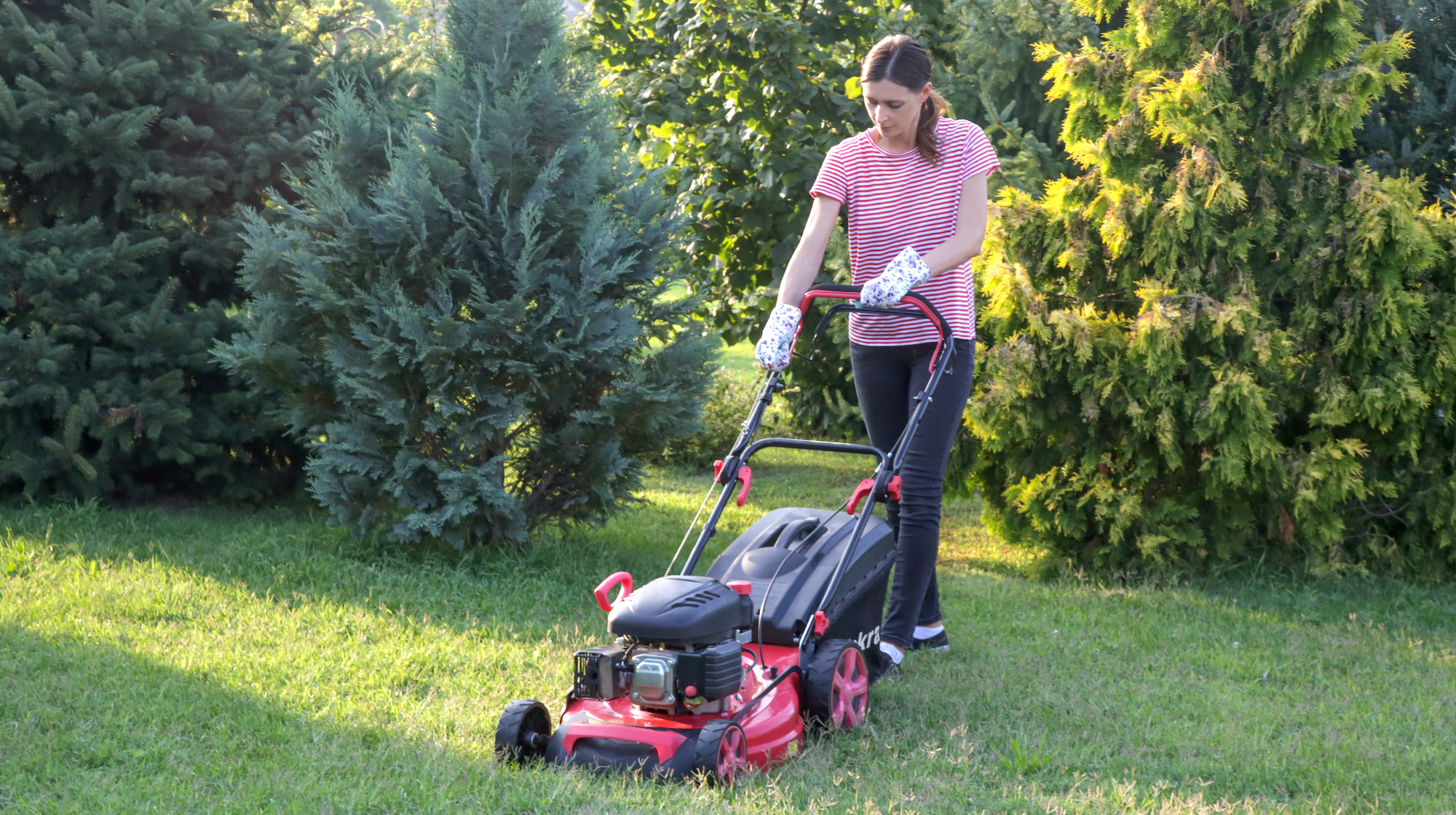
It’s well known that the physical effects of gardening can save you the cost of a gym membership. Mark Emery, Training & Education Officer at Thrive, an organization that promotes health and wellbeing through gardening, says, “General garden activities, such as mowing the lawn and digging, can help burn more than 300 calories an hour.”
But, while we already appreciate that gardening can give us a good workout for free, there is increasing evidence that it improves our mental health, too. According to a YouGov Survey for the Horticultural Trade Association in 2024, 85% of those questioned agreed that gardens and green spaces boost their mood.
Even back in 2021, the Royal Horticultural Society (RHS) reported that those who garden every day have wellbeing scores 6.6% higher and stress levels 4.2% lower than people who don’t garden at all.
How does gardening benefit our mental health?

What is it about gardening that improves both our body and soul? Gardening and being in nature contribute to a healthier society on many different levels, with Emery explaining, “[Combined] they offer many of the elements needed for a happy, healthy lifestyle — time in nature, physical and mental activity, mindfulness, connection with others, skill development and healthy behaviors.”
It also improves our health and happiness and “shows positive effects on both our mental and physical health,” he adds. “It’s a great physical activity that gets you outside moving in the fresh air, and spending time in nature, which helps to ease your mind.”
Besides the physical benefits of improving muscle strength, coordination, dexterity, motor skills, and balance, Emery says your mental health will benefit from “reducing stress and anxiety and providing a sense of purpose and achievement.”
What’s more, if you garden within a community setting, or at an allotment, Emery adds, “the connection with others will reduce feelings of isolation and exclusion.”
Changing your mindset: Gardening is no longer a chore
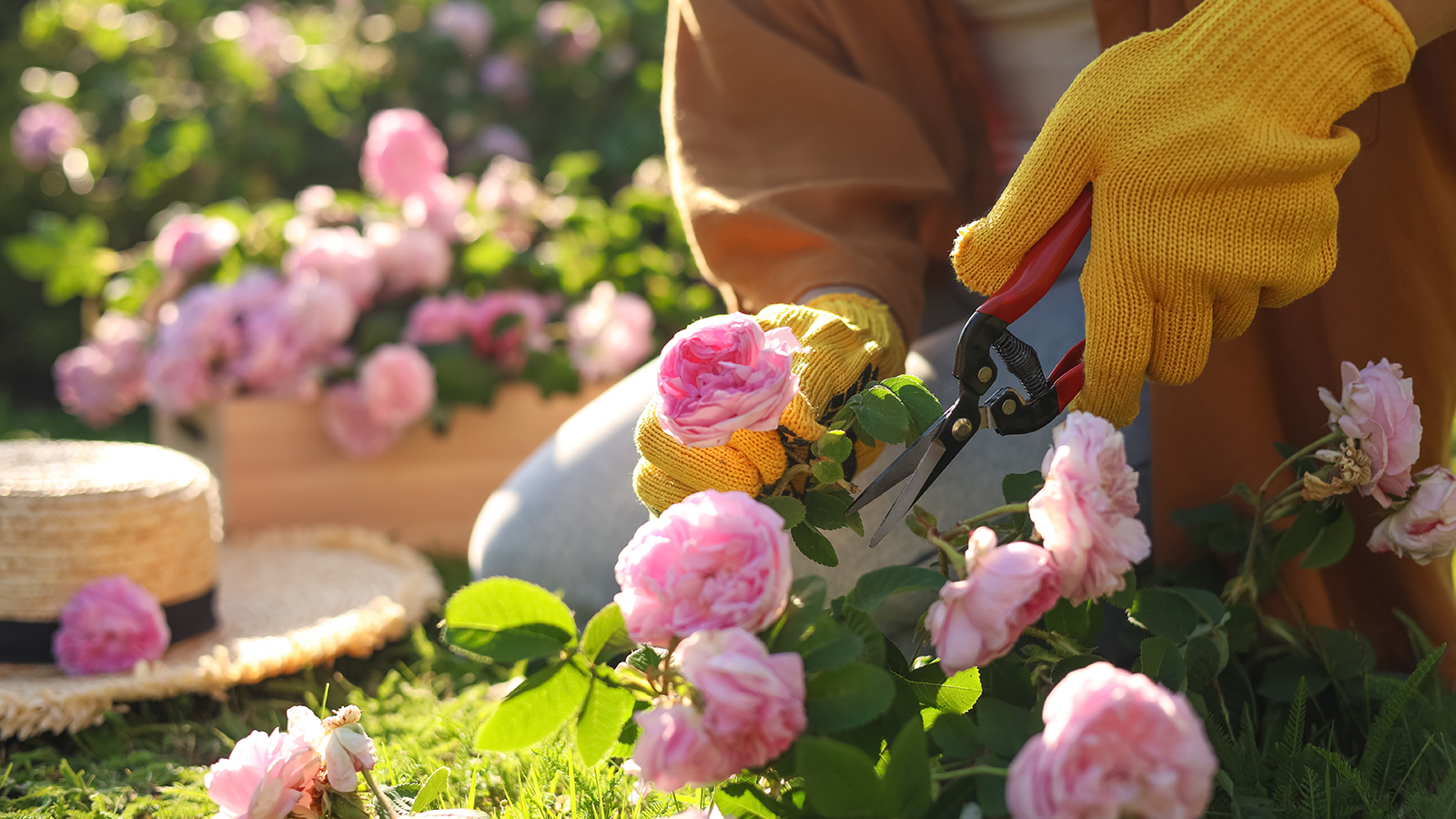
For occasional gardeners, tending to your patch can seem like a chore, especially when you try something for the first time, like sowing seeds, as it can sometimes end in disappointment. However, Fiona Jenkins, gardening expert at My Job Quote, says all it needs is a change of mindset, “Think about how it can aid your mental health, focus and concentration.
“Focusing your attention on the task of gardening can reduce negative thoughts and help you to feel more peaceful and content in the moment. It can provide a welcome break from our daily lives, which are often dominated by technology, and help us to reconnect with nature.”
She adds, "For many, simply spending time around plants and breathing in the fresh outdoor air can provide a great relief to stress levels. It can help us feel more grounded and connected to the world around us, which, in turn, has a huge positive impact on our mood.”
Does the connection with nature play a part in improved mental health?
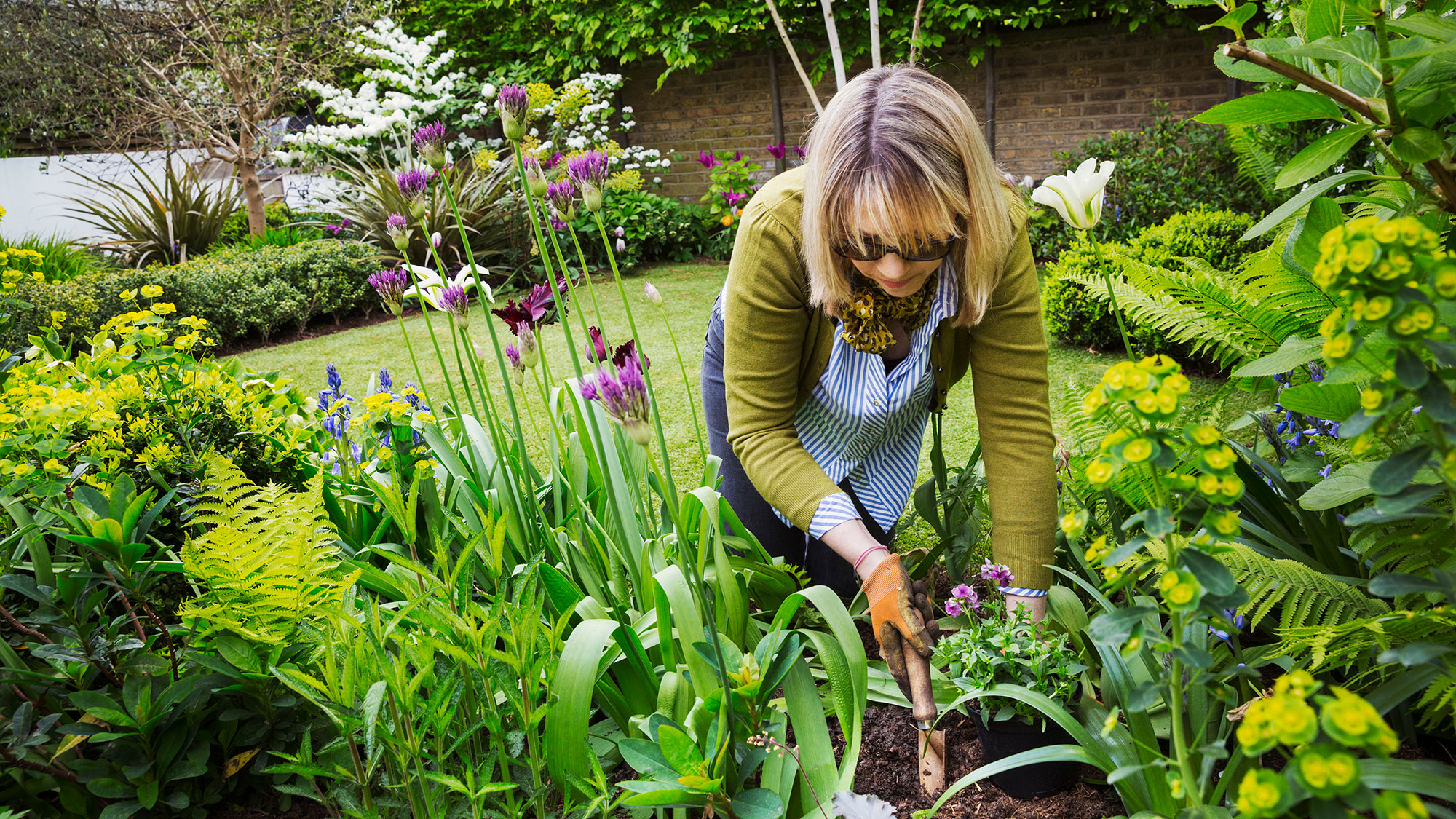
Emery explains that being in nature is one of the three active processes that work together to deliver benefit. It combines with being occupied and active and being within a positive social environment.
“Spending time in nature can help bring you back to yourself, “says Emery. “When you spend time in nature on a sensory level, tuning into sounds and scents as well as sights, you can gradually start to feel your place in the world.”
How much time do you need to spend gardening?
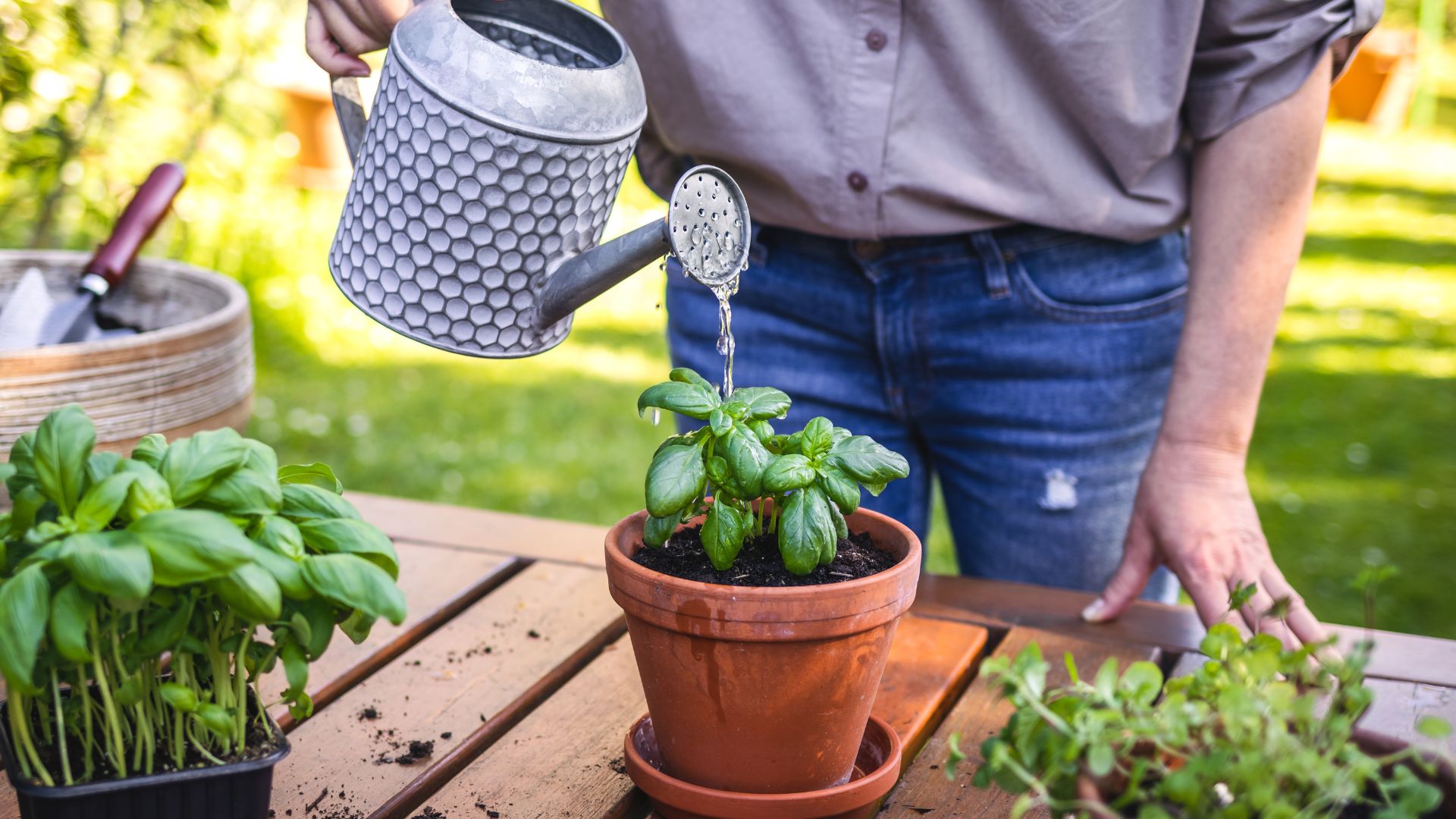
“You don’t really have to think about the health benefits to get the health benefits,” says Emery. “Just getting out in the garden and doing a little bit has a positive impact. Research has shown that green exercise, such as gardening, can lead to an increase in self-esteem and mood boost after just 5 minutes.”
Taking a few minutes to pull up a few weeds, remove a few spent blooms, or watering a container pot will help you refocus and settle your mind.
And you don’t need to spend much more time outside for it to have other benefits. “Just 15 minutes a day in nature is enough to boost your mood, concentration and physical health,” he says.
How to garden without a yard
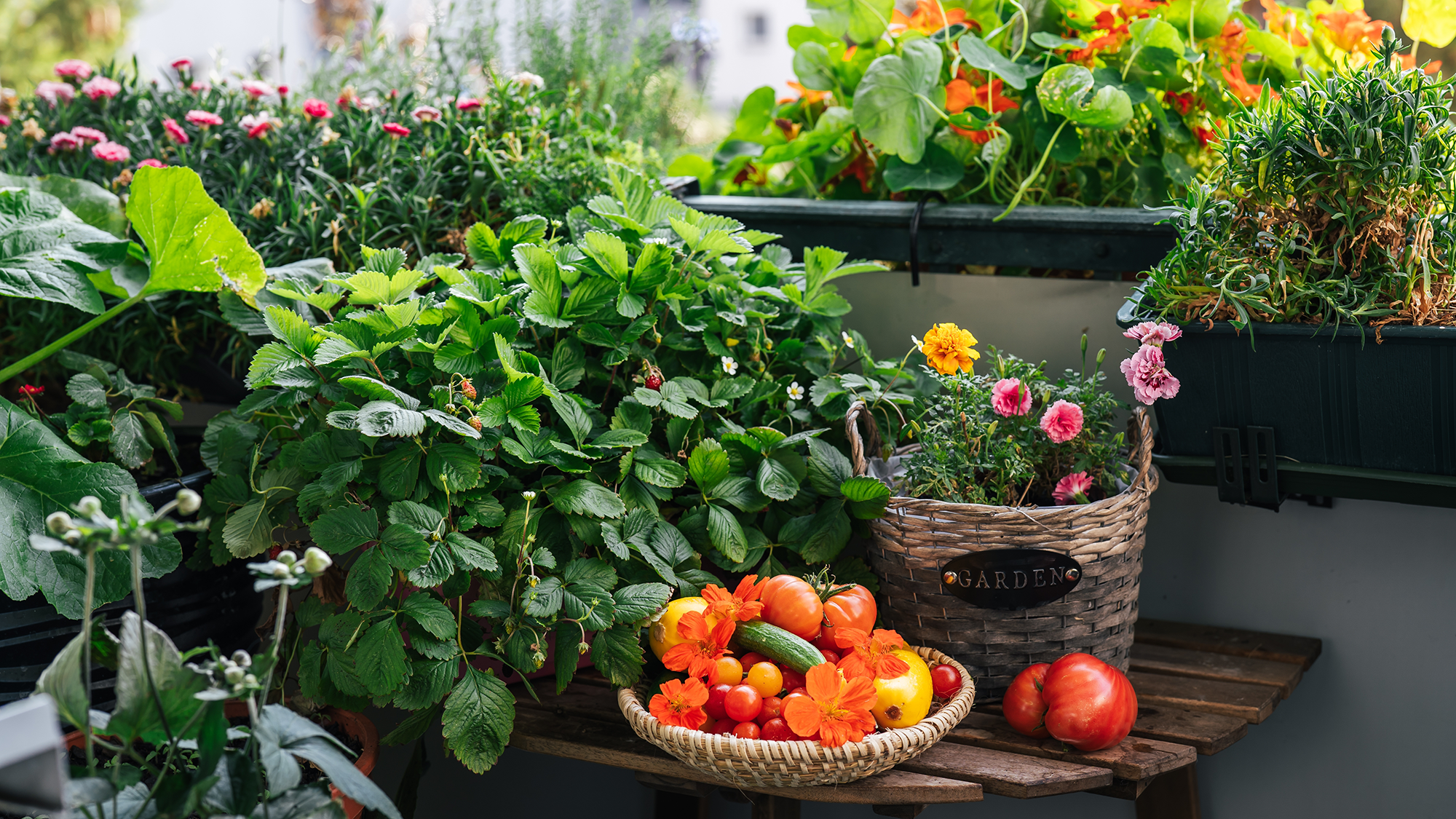
If you live in an apartment or home without a yard, you can still benefit from gardening. “You will be amazed how much you can grow in a small space, on a windowsill, or in pots on a balcony," Emery says. "You can be really inventive with planting.
When space is limited you could try growing a container garden or a vertical garden that makes use of height.
“Nature doesn’t just have to be outside either, as there is plenty you can do in the home. Houseplants are wonderful companions.”
But if you want to be outside and enjoy physical movement or quiet time in nature, he suggests joining a community gardening group, going on nature walks, and discovering the parks or nature reserves in your local area.
How to overcome a challenging climate

It can be tricky to get outside when it’s pouring rain; besides getting drenched, certain garden jobs, such as mowing the lawn, should be avoided. So, when we face weather challenges what can we do?
“Indoor areas, polytunnels and glasshouses work well on very wet and windy days," Emery says. "We can grow plants indoors, clean and maintain tools and pots, or just plan ahead to the next year’s growing endeavors.”
Gardening can lower cortisol levels — whatever your age
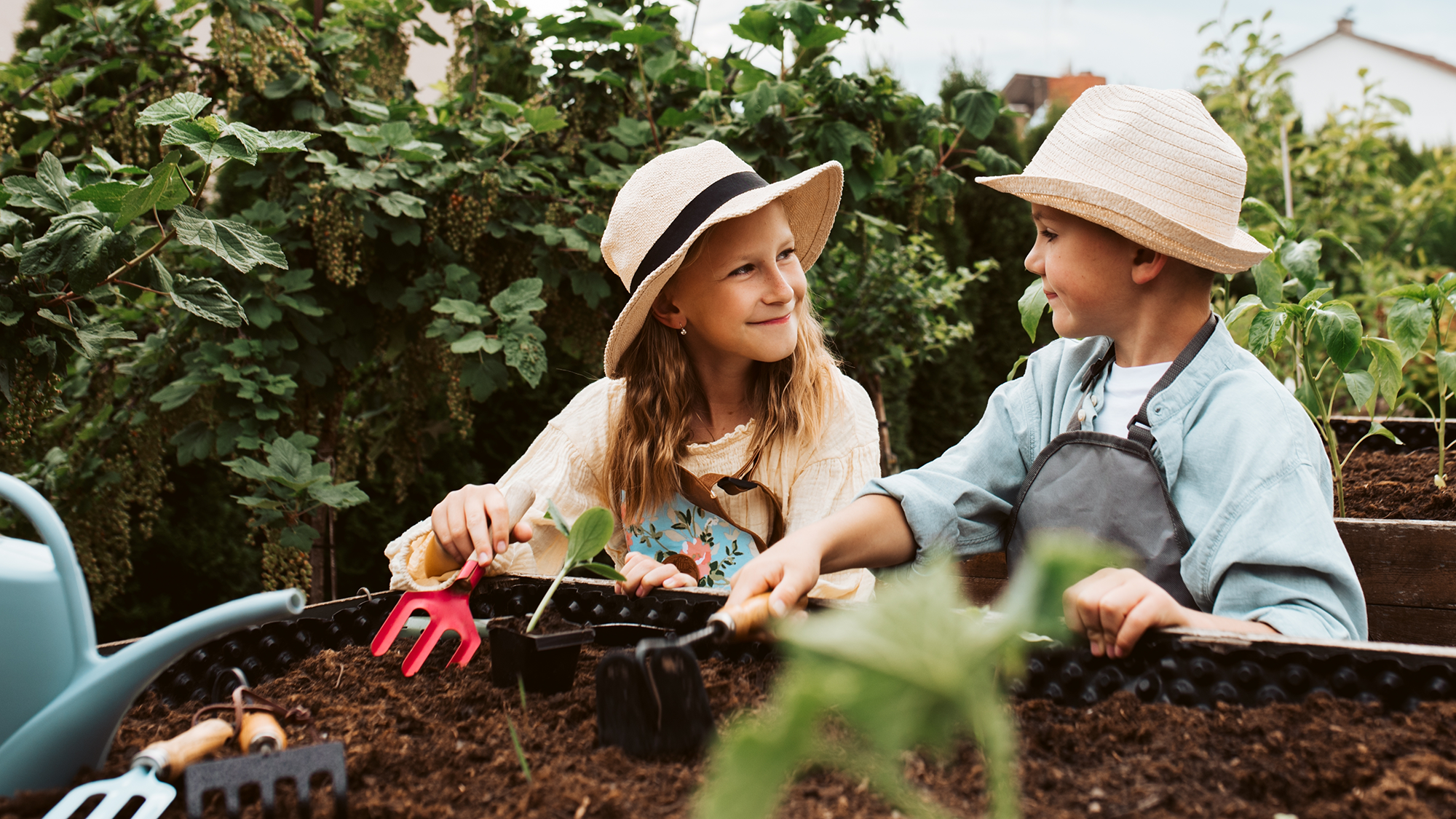
According to a survey by Barker & Stonehouse, the younger we are, the less time we’re likely to spend outside. It states that Millennials are 17% less likely to relax in their garden than Gen Z, and 24% less likely than Boomers and Gen X. And the reason? Bad weather is putting the younger generation off from spending time outside.
But whatever our age, we can benefit. Studies by Davis Health at the University of California show that being in nature has a positive effect on our bodies, reducing cortisol levels, muscle tension and lowering our heart rate, while increasing vitamin D, which is important for bones, blood cells and the immune system. Just what the doctor ordered!
Whether you’ve had green-fingers for years or you’re just starting your gardening journey, there are plenty of physical and well-being benefits that getting outside and enjoying your garden can bring. Apart from cherishing your achievements, you’ll be happier and healthier.







